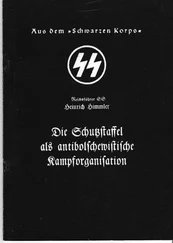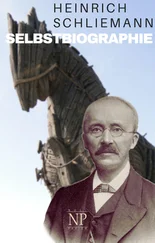The long delay in holding these trials by the German Public Prosecutors is due to the fact that the relevant files have only been handed over in recent years by the Allies, who took possession of them after the war. The Public Prosecutor’s Office specially set up to deal with German war crimes only began to function round 1957 in Ludwigsburg, near Stuttgart. Another cause of delay has been that many of the men now being indicted have lived in hiding using false names: others have fled abroad, and negotiations for their extradition have been prolonged — some, like those concerning the notorious Dr Mengele, with little hope of success.
Twenty-three men finally stood in the dock at Frankfurt in 1964. Evidence has been produced which shows that they have been guilty of the most appalling crimes. The character of the men employed by Himmler and his staff is revealed, for example, in the behaviour of Oswald Kaduk, whose noted fondness for children extended to issuing Jewish children in the camp with toy balloons (an ‘organized’ issue, to quote from the terms of the evidence) before they were ‘squirted’ ( abspritzen ) with a phenol injection in the heart at the rate of ten children a minute. ‘Papa Kaduk’, as he was later known because of his love for children, had worked as a male nurse after the war until his identification and arrest.
When a former S.S.Judge was heard as a witness, he appeared both elegant and at ease as he enunciated his slick, evasive answers to the questions put to him by the President and the Prosecutor, reviving once again the verbiage of death: ‘special treatment’, ‘desettlement’, ‘the general line’ and even ‘sovereign acts beyond the reach of the judiciary’, all S.S. terms for murder. Then suddenly one of the less intelligent men in the dock, Stefan Baretzki, asked leave to speak. It was obvious he could no longer stand this evasion of the truth. The President gave him leave to come forward. We had to do the dirty-work, said Baretzki in effect, while these men talked, and when we complained about being ordered to kill children we were told to be silent about something we could not understand, and obey our orders. He then walked back to his seat.
This outburst reveals the process of Nazi genocide. The men who carried out the killings were encouraged not to think what they were doing, but to accept it as a necessary mission for the Führer and the German people. After this, the readiness to be tough, ruthless and efficient in the destruction of people regarded as subhuman was the virtue most to be valued in those chosen to carry out their Führer’s orders.
The primary published sources to which we have constantly turned during the preparation of this book are Gerald Reitlinger’s The Final Solution and The S.S., The Kersten Memoirs, and The Schellenberg Memoirs , and also the transcript of the Trial of the Major War Criminals in Nuremberg; the edition of the latter referred to below as I.M.T. is that published by H.M.S.O. in London in twenty-two volumes. We have also drawn extensively on the documents used in evidence at the trial in the edition in German published in Nuremberg, and in the American edition in English known as Nazi Conspiracy and Aggression, referred to as N.C.A. below. Important secondary sources include Willi Frischauer’s Himmler, Charles Wighton’s Heydrich, H. R. Trevor-Roper’s The Last Days of Hitler, Rudolf Hoess’s Commandant of Auschwitz, Edward Crankshaw’s Gestapo, and Mitscherlich’s and Mielke’s The Death Doctors.
Throughout this book we have drawn on material from the copious files originating from Himmler’s headquarters and preserved now variously at the German Federal Archives in Koblenz, the Institut für Zeitgeschichte in Munich, the Berlin Document Centre, the Tracing Centre in Arolsen, the Rijksinstituut voor Oorlog Documentatie in Amsterdam, and the Wiener Library in London.
In these Notes the authors are referred to individually by their initials, R.M. and H.F.
We are grateful to Gebhard Himmler, the elder brother of Heinrich, who was our principal source of information for this initial period. We have also studied the microfilm of the surviving portions of Himmler’s early diaries kindly loaned us by the Library of the Hoover Institution at Stanford in California, and consulted the most valuable analysis of these diaries made by Werner T. Angress and Bradley F. Smith in the Journal of Modern History, Vol. 31, No. 3, Sept. 1959. The quotations from the diaries are in some instances derived from their translations, but in most cases we have used our own.
Other sources of information concerning Himmler’s youth include evidence from men who knew him as a student, in particular Dr Riss, head of the Erding law court, and Colonel Saradeth of Munich.
1
During Himmler’s infancy the family home was frequently changed. Himmler was born in a second-floor apartment at 2 Hildegardstrasse, Munich. In March the following year the family moved to a comfortable apartment over Liebig’s chemists’ establishment in the Liebigstrasse, a pleasant street in the city. From March 1902—4 the Himmlers were in Passau, a town near Munich, after which they returned to Munich and lived until 1913 at 86 Amalienstrasse. It was in this house, therefore, that Himmler’s boyhood was spent. From 1913-19 the family was in Landshut; from 1919-22 in Ingolstadt; then back again in Munich from 1922-30, when Himmler’s father retired at the age of 65. He died five years later, in 1935; Himmler’s mother died in 1941.
2
These are, of course, German pounds. Himmler’s weight at birth was 3.7 kilos.
3
Diary-writing was not common among the boys of the period, but Himmler was no doubt encouraged to keep one because his father was a meticulous diarist. A list of books noted by Himmler as read during his last years at school include Thomas Mann’s The Magic Mountain, and works by Dinter and Bierbaum, which put the case both for and against the Teutonic ideal. Strangely enough, Himmler makes no comment about any of these books, merely listing their titles.
4
He made this claim to Count Bernadotte. See The Fall of the Curtain, p. 57.
5
These recollections are principally those of Dr Riss and Col Saradeth. Dr Riss was a member of the Apollo.
6
Dr George W. F. Hallgarten was later to emigrate from Germany to the United States where he works as an historian and sociologist. He published a pamphlet in German giving his recollections of Himmler at the school in Munich at which his father taught. He confirms Himmler’s diligence, his primness of nature, and his pathetic determination to succeed in sport and gymnastics, for neither of which he had any aptitude. For example, he could not complete a single ‘pull-up’ at the cross-bar. The school served as a preparatory establishment for the Pagerie, a school reserved exclusively for the sons of the Bavarian aristocracy who were eligible for service as pages in the Bavarian Court. Hallgarten claims that Himmler felt great resentment that he was not eligible by birth to attend the Pagerie. This however has been denied to H. F. by both Herr von Manz and the Baron Waldenfels, who knew the Himmler family and attended the Pagerie. For Prof. Hallgarten’s recollections see Mein Mitschüler Himmler (Wiener Library).
7
See Note 22, p. 211 of the article by Angress and Smith mentioned above.
8
Each state in Germany had, and still has, its own provincial parliament for the conduct of local affairs, to which deputies are appointed from the parties after local elections. The Reichstag represented, and still represents under its new name the Bundestag, the federal parliament, dealing with national policy and legislation. Deputies were elected to the Reichstag (as now to the Bundestag) on the basis of proportional representation, the various parties selecting their own deputies to fill the number of seats due to them after each election.
Читать дальше











